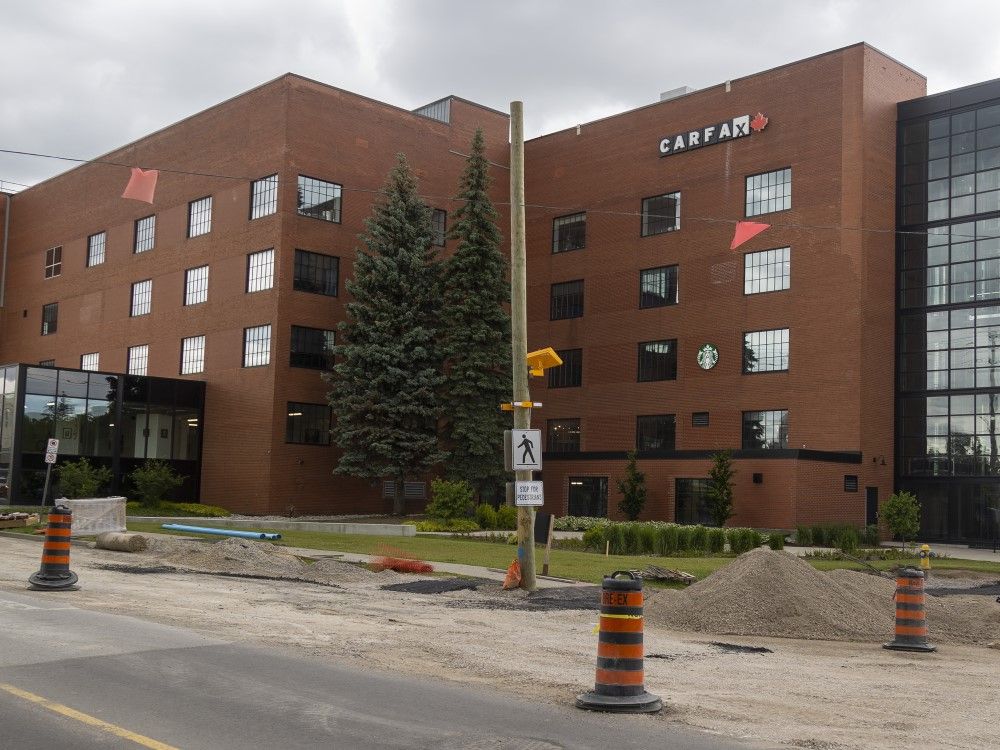




A recent report from the Fraser Institute has labeled Ontario as an 'economic laggard' within Canada, highlighting troubling trends in its economic performance. From 2000 to 2022, Ontario's average annual real per-capita GDP growth was only 0.7%, significantly lower than the Canadian average of 1.3% and Quebec's 1.2%. This decline has caused Ontario's GDP per person to drop from the second-highest in the country to fifth place [1c9cf03a].
The report also reveals that Ontario has run annual deficits 19 times, accounting for 80% of the period analyzed, compared to Quebec's 14 times, or 60%. Furthermore, Ontario's net government debt-to-GDP ratio has escalated from 25.6% in 2005 to 36.5% in 2022, raising alarms about fiscal management [1c9cf03a].
Low productivity has emerged as a critical issue, with Canadian productivity levels plummeting from 88% of U.S. levels in 1984 to just 71% in 2022. Finance Minister Chrystia Freeland has identified this decline in productivity as the 'Achilles heel' of the Canadian economy, emphasizing the need for urgent reforms [1c9cf03a].
In the context of the broader Canadian economy, Ontario's struggles are particularly stark against the backdrop of a projected 6% growth in Canada’s economy over the past five years, while the U.S. economy is expected to grow by 11% during the same period. This disparity could see Canada's per capita national income fall to about 70% of the U.S. figure by 2025 [51eb8231].
Adding to the economic concerns, a recent analysis by the Fraser Institute indicates that Canadians' economic wellbeing has been declining for years. As of September 2024, GDP per person in Canada was $58,601, down 2.2% from $59,905 in June 2019. The country experienced one of the worst declines in inflation-adjusted GDP per person in 40 years from mid-2019 to the end of 2023 [cee0468e].
Median earnings in Canada were reported to be lower than in every U.S. state in 2022, with private-sector employment growing by only 3.6% from 2019 to 2023, compared to a 13.0% increase in the government sector. This trend suggests a disconnect between the government’s perception of economic conditions and the reality faced by Canadians [cee0468e].
Federal Finance Minister Chrystia Freeland has commented on what she describes as a 'vibecession' affecting Canadians, where the overall economy is growing, but individual living standards are declining. The Trudeau government continues to assert that the economy is fine, despite stagnation in the private sector and the declining living standards of Canadians [bfafa488].
In a related context, Canadian business investment has been lagging significantly, with capital spending declining by 16% over the last decade. Only 18% of small and mid-sized businesses plan to increase capital spending in the next two years, citing economic conditions (71%), government policy (63%), and company viability (55%) as key factors influencing their decisions [a9bfb4f6].
Moreover, spending on machinery and equipment (M&E) as a percentage of GDP fell from 5.5% in 2013 to 4.2% in 2023, although Ontario is the only province to have increased M&E spending during this time. Historically, Canadian companies have invested less than their U.S. counterparts, with a persistent gap for 50 years [a9bfb4f6].
As the economic outlook for Ontario raises concerns about its competitiveness and ability to attract investment, the implications for Ontario's workforce and overall economic health will be closely monitored. The potential for lower interest rates in 2025 may improve the investment outlook, but the current barriers to investment remain significant [a9bfb4f6].